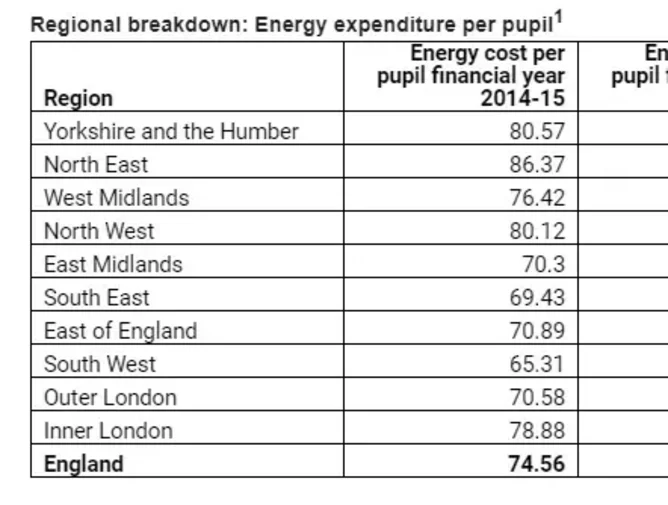All but two UK regions failing on school energy efficiency

Most schools are still "treading water" on implementing energy efficient technology, according to new analysis of Government data from eLight.
Yorkshire & the Humber and the North East are the only regions where schools have collectively reduced how much they spend on energy per pupil, cutting expenditure by 4.4% and 0.9% respectively. Every other region of England increased its average energy expenditure per pupil, with schools in Inner London doing so by as much as 23.5%.

According to The Carbon Trust, energy bills in UK schools amount to £543 million per year, with 50% of a school’s total electricity cost being lighting. If every school in the UK implemented any type of energy efficient technology, over £100 million could be saved each year.
Harvey Sinclair, CEO of eEnergy, eLight’s parent company, said the figures demonstrate an uncomfortable truth for the education sector – namely that most schools are still treading water on the implementation of energy efficient technology. Energy efficiency could make a huge difference to meeting net zero ambitions, but most schools are still lagging behind.
“The solutions exist, but they are not being deployed fast enough," he said. "For example, we’ve made great progress in upgrading schools to energy-efficient LED lighting, but with 80% of schools yet to make the switch, there’s an enormous opportunity to make a collective reduction in carbon footprint and save a lot of money on energy bills. Our model means the entire project is financed, doesn’t require any upfront expenditure, and repayments are more than covered by the energy savings made."
He said while it has worked with over 300 schools, most are still far too slow to commit. "We are urging them to act with greater urgency because climate change won’t wait, and the need for action gets more pressing every year. The education sector has an important part to play in that and pupils around the country expect their schools to do so – there is still a huge job to be done."
North Yorkshire County Council is benefiting from the Public Sector Decarbonisation Scheme, which has so far awarded nearly £1bn for energy efficiency and heat decarbonisation projects around the country, and Craven schools has reportedly made a successful £2m bid (click here).
The Department for Education has issued 13 tips for reducing energy and water use in schools.






